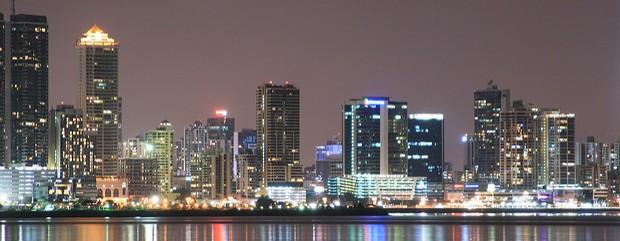Youth Power in the IDP Camps
“Angry Youths become a Force in Darfur,” by Neil MacFarquhar in The New York Times on December 20, describes an undercurrent of the ongoing war that often goes unnoticed: an increasingly militarized conflict between youth and traditional leadership within internally displaced persons (IDP) camps. The article succeeds in exposing a few key points, namely that youth are subverting the power of traditional tribal sheikhs within IDP camps, that education and English-language training have advantaged youth in the power struggle, and that youth are strongly connected to the various rebel movements. However, it neglects to contextualize these post-displacement political struggles with historical pre-war patterns. Nor does it touch upon the absence of formal mechanisms for youth leadership within Darfuri society. Furthermore, the article ignores the heterogeneity of the IDP youths’ experience in adapting to war-affected sociopolitical realities.
An important clarification that the article lacks is a distinct definition of “youth.” The term youth in Darfur is used to reference individuals between the ages of 13 and 40 and generally refers, in research, to men. Transition from youth to adult or elder varies by tribe but is usually determined by marital status, parenthood, and understanding of customary law. While all IDPs have suffered extensive loss, the experience of youth is unique in that the loss is compounded by fears of never transitioning to adulthood, never marrying, and never having the opportunity to pursue future ambitions. Since the government and rebel groups see male youth as primary targets for recruitment, arrest, harassment and assassination, their freedom of movement is severely restricted – in contrast to pre-war patterns of internal and international migration that necessitated high degrees of mobility. Exclusion also plays a role as youth were only marginally targeted for assistance and were almost entirely absent from decision-making processes in the initial years of the aid effort. They had no role in “representative” bodies and had no institutions of their own. It is evident how this scenario could cultivate feelings of resentment, anger and frustration, as these co-occurring elements constitute an extreme assault on individual conceptions of identity.
Likely connected to the ways in which the conflict has forced a loss of control over their lives, trends suggest that young men have actively attempted to assert control of territory within the camps. Youth have done this, in part, by taking responsibility for camp security provision (patrolling, maintaining law and order, etc). Technically, these youth are supervised by and report to the Executive Committee of Sheikhs but, often, they operate autonomously. As of 2006, youth began to control external engagement within the camps by establishing temporary checkpoints to restrict access and organizing protest rallies when actors were allowed entrance without their approval.
Evolving roles for youth were juxtaposed with significant shifts in the constitution of traditional tribal authority structures, as many of the traditional leaders had died or abandoned their communities during the conflict. Newly selected leaders within the camps derived their legitimacy not from lineage but from their connection to international organizations and their direct involvement in the distribution of relief supplies (over the last five years, new leaders have become increasingly politicized). These new representatives of the displaced tended to be younger than their predecessors. As a result, young men who would not otherwise have had the opportunity to ascend to that level of authority have, to some extent, infiltrated the ranks of traditional leadership. (It is worth noting that a higher proportion of youth, as opposed to elders, are able to speak English which facilitates communication with international organizations and provides youth with a distinct advantage. Youth become conduits of information for the elders and, in a sense, become arbiters of a new culture – the camp culture. Irrespective of these dynamics, INGOs and the UN generally do not have strategic policies on the political inclusion of IDP youth.)
In the different camps, there are varying dynamics that define the strained relations between IDP youth and traditional leaders. Almost every camp has one or more youth associations that vary in degree of maturity, organization, transparency and politicization. The primary distinction, however, is whether the youth association operates parallel to or in conjunction with the tribal leadership structure. In the case of Abu Shouk camp (as is true for others), youth believe that the camp’s tribal leadership has been co-opted by the Sudanese government and is becoming progressively corrupt. In other camps, such as those surrounding El Geneina in West Darfur, youth reportedly think of the sheikhs as “outdated,” turning instead to insurgent groups for political guidance while establishing parallel governing structures within the camps. Some politicized youth are clearly attempting to assert themselves as representatives of the political wing of the associated insurgent group.
The way that youth have asserted themselves is consistent with an evolution of pre-war norms. Traditionally, youth brigades had served policing and security functions under the auspices of tribal leadership. IDP youth continue these functions within the camps but in a more renegade fashion that has largely asserted its autonomy from tribal leadership structures. Similarly, tensions between tribal administrations and youth have existed for decades, as the two have competed for power within the secular political system. However, war has intensified the vie for power, while exposing to public view what used to be a more covert struggle. In some sense, war has provided an opportunity for youth to remedy their political exclusion. With the insecurity of the conflict justifying militarism and normalizing the use of force, politically-minded youth have found a new way to make their presence felt and their opinions heard.
Michelle Barsa conducted research in Sudan in 2007 on the formal and informal governing structures within Darfuri communities (pre-war and post-displacement), looking specifically at the tensions and synergies that exist between women/youth and traditional tribal leadership. Contact: [email protected]





